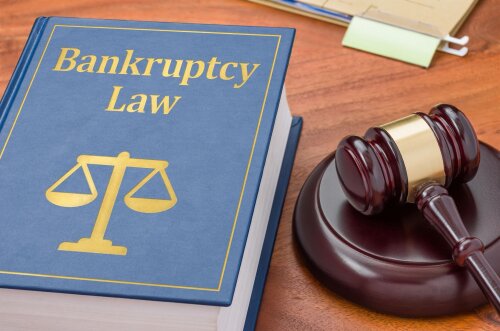Best Restructuring & Insolvency Lawyers in Alabama
Share your needs with us, get contacted by law firms.
Free. Takes 2 min.
Or refine your search by selecting a city:
List of the best lawyers in Alabama, United States
About Restructuring & Insolvency Law in Alabama, United States
Restructuring and insolvency law in Alabama is designed to help individuals and businesses that face severe financial distress. This area of law involves processes like bankruptcy filings, debt negotiations, asset protection, and reorganization plans, aiming to give debtors a fresh start while ensuring fairness to creditors. While federal bankruptcy laws form the foundation, Alabama has specific procedures and exemptions that can influence how insolvency cases are handled throughout the state. Both businesses and private individuals can benefit from understanding the restructuring and insolvency landscape, as it provides avenues for relief and recovery from overwhelming debt.
Why You May Need a Lawyer
People often seek legal help with restructuring and insolvency issues in Alabama for a variety of reasons. Common situations include overwhelming credit card or medical debt, pending foreclosure or repossession, business financial struggles, creditor harassment, or uncertainty about bankruptcy eligibility and consequences. A lawyer can explain your rights, help you understand your options, protect your assets within the framework of Alabama and federal laws, negotiate directly with creditors, and represent you in court. Legal assistance is especially valuable when deciphering complex laws, choosing the right type of bankruptcy, or crafting tailored restructuring solutions for struggling businesses.
Local Laws Overview
In Alabama, restructuring and insolvency proceedings are largely governed by the United States Bankruptcy Code, but state-specific laws and exemptions play a significant role. For example, Alabama allows residents to claim certain exemptions for property in bankruptcy, such as a homestead and personal property exemptions, which may differ from those in other states. Alabama does not allow couples to double their exemptions (a factor in joint filings), and the state requires adherence to its own exemption list rather than the federal list. Alabama courts handle bankruptcy cases in three federal districts - Northern, Middle, and Southern - which may have their own local rules and procedures. Understanding these nuances is critical for both individuals and businesses considering insolvency or restructuring options.
Frequently Asked Questions
What is the difference between bankruptcy and restructuring?
Bankruptcy is a legal process where a person or business declares the inability to repay debts, often resulting in asset liquidation or a repayment plan. Restructuring refers to negotiating new terms with creditors to manage debt, which may occur inside or outside of court and does not always involve bankruptcy.
Which types of bankruptcy are most common in Alabama?
The most common bankruptcy filings for individuals are Chapter 7 (liquidation) and Chapter 13 (wage earner’s plan). For businesses, Chapter 11 (reorganization) is most common, allowing continued operations while debts are restructured.
What are Alabama’s bankruptcy exemptions?
Alabama allows filers to protect specific property through exemptions, such as up to 17,500 dollars of equity in a homestead (as of 2024) and up to 9,300 dollars for personal property. Exemptions are updated periodically and only apply to property in Alabama.
Can I keep my home and car if I file for bankruptcy in Alabama?
It depends on your equity and the relevant exemptions. If your equity in your home or car does not exceed Alabama’s allowed exemptions, you may be able to retain both by continuing to make required payments.
Will bankruptcy stop creditor harassment and collections?
Yes. Once you file for bankruptcy, the court issues an automatic stay that prevents most creditors from contacting you or pursuing collection actions.
How does business insolvency work in Alabama?
Businesses in Alabama can pursue restructuring through Chapter 11 bankruptcy, which allows the business to continue operations while negotiating new debt terms. Alternatively, Chapter 7 bankruptcy involves liquidation if continued operations are not feasible.
How long does bankruptcy stay on my credit report?
In Alabama, as elsewhere, a Chapter 7 bankruptcy generally remains on your credit report for 10 years, while a Chapter 13 bankruptcy stays for 7 years.
Can debts be negotiated without filing formal bankruptcy?
Yes. Individuals and businesses may negotiate directly with creditors for reduced payments, interest rates, or settlements, sometimes with the assistance of a lawyer or debt management professional.
Are all debts discharged in bankruptcy?
No. Certain debts like student loans, child support, most taxes, and criminal fines are rarely discharged. Your lawyer can help identify which of your debts can be forgiven through bankruptcy.
What should I bring to my first meeting with a restructuring and insolvency lawyer?
Bring detailed lists of your assets, debts, income, expenses, recent bank statements, tax returns, loan documents, and any court documents related to your debts or collections.
Additional Resources
If you need further information about restructuring and insolvency in Alabama, consider these resources:
- United States Bankruptcy Court - Northern, Middle, and Southern Districts of Alabama
- Alabama State Bar Lawyer Referral Service
- Alabama Department of Banking
- Nonprofit credit counseling agencies in Alabama
- Legal Services Alabama (provides assistance to low-income individuals)
Next Steps
If you are facing financial difficulties in Alabama, the first step is to gather your financial records and make a clear list of your debts and assets. Consider scheduling a consultation with an Alabama-based restructuring and insolvency lawyer, who can help you review your options based on your unique circumstances. Whether you are an individual or a business, a qualified attorney can outline the best path forward, help protect your rights, and guide you through each stage of the legal process. Acting early often allows for more options and better outcomes. If eligible, also explore free or low-cost legal services and counseling through recommended local organizations.
Lawzana helps you find the best lawyers and law firms in Alabama through a curated and pre-screened list of qualified legal professionals. Our platform offers rankings and detailed profiles of attorneys and law firms, allowing you to compare based on practice areas, including Restructuring & Insolvency, experience, and client feedback.
Each profile includes a description of the firm's areas of practice, client reviews, team members and partners, year of establishment, spoken languages, office locations, contact information, social media presence, and any published articles or resources. Most firms on our platform speak English and are experienced in both local and international legal matters.
Get a quote from top-rated law firms in Alabama, United States — quickly, securely, and without unnecessary hassle.
Disclaimer:
The information provided on this page is for general informational purposes only and does not constitute legal advice. While we strive to ensure the accuracy and relevance of the content, legal information may change over time, and interpretations of the law can vary. You should always consult with a qualified legal professional for advice specific to your situation.
We disclaim all liability for actions taken or not taken based on the content of this page. If you believe any information is incorrect or outdated, please contact us, and we will review and update it where appropriate.
Browse restructuring & insolvency law firms by city in Alabama
Refine your search by selecting a city.















